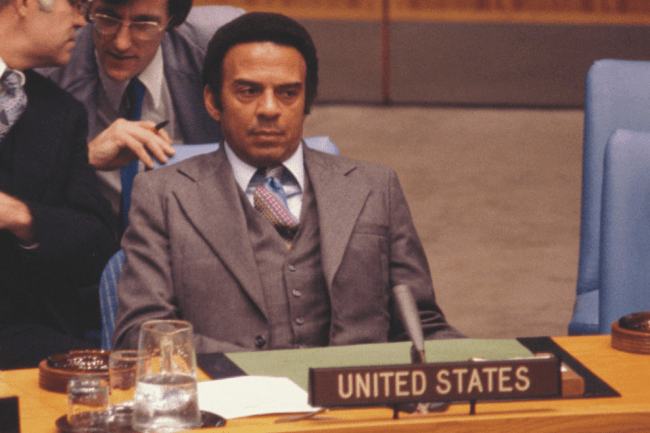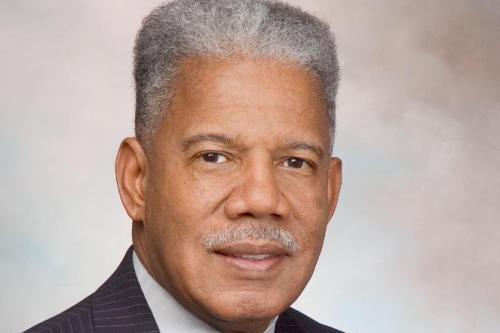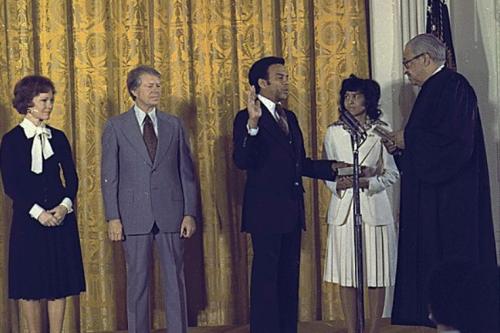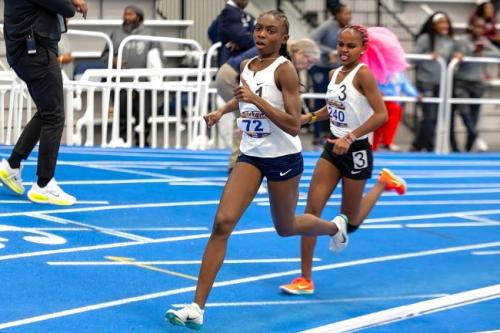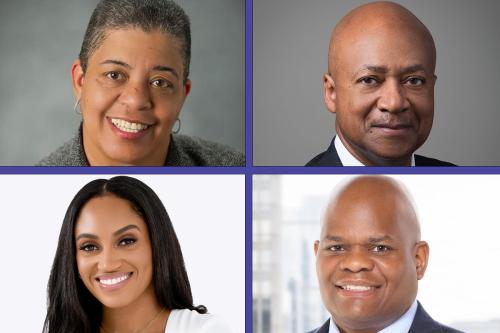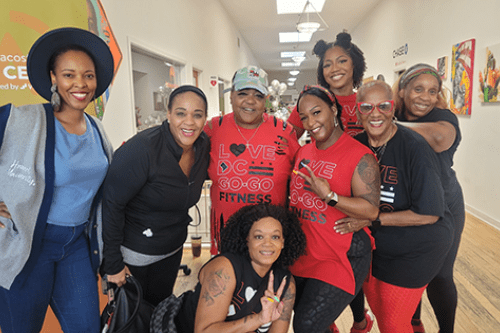Photo above: Ambassador Andrew Young (B.S. '51) occupies the U.S. seat in the United Nations.
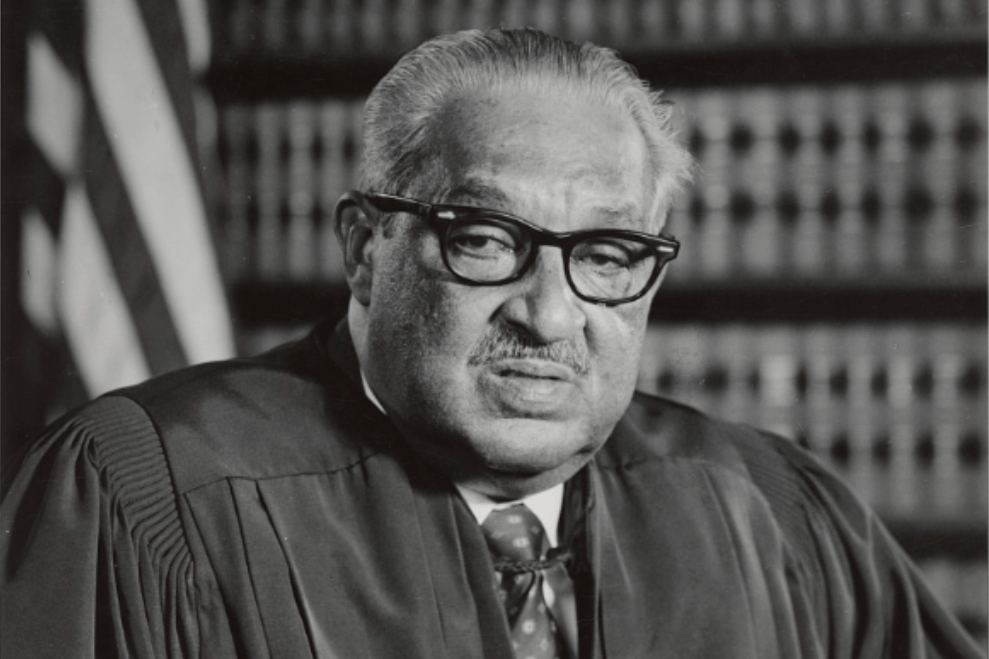
For 157 years, Howard University has served as the nexus of intellectual engagement and social advocacy to ensure that all Americans can fully exercise all the rights of citizenship. Even before the end of slavery, the work of Frederick Douglass, who would become a Howard trustee, served as the foundation for universal enfranchisement. A century later, Howard Law School dean Charles Hamilton Houston and his student, Thurgood Marshall, would successfully challenge segregation and catalyze the fall of government-sanctioned racial discrimination, including participation in the democratic process. Following their lead, scores of Howard alumni have kicked down doors and broken barriers to help build a better America, serving as pioneers in virtually every area of civic engagement.
As alumna Kamala Harris ends her historic tenure as the first woman, first person of color, and first HBCU graduate to serve as vice president of the United States, Howard’s Newsroom Staff has taken a look at the incredible influence the Howard community has had on the American civic experience and global democracy over the past century and a half.
Frederick Douglass
Howard University Trustee, Pioneering Abolitionist, and Suffragist
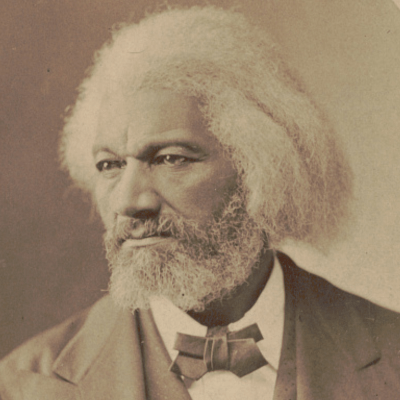
Born into slavery, Frederick Douglass escaped and became perhaps the nation’s leading abolitionist. The founder of the North Star publication, his widely published writings and exquisite orations became the foundation for America’s ongoing fight for equal rights. He was perhaps the nation’s first crusader for racial justice and became the first African American nominated for vice president, on the ticket for the Equal Rights Party, a minor party focused on suffrage. He was the only Black person to attend the famous Seneca Falls Convention, the first national conference focused on women’s rights, where he passionately advocated for voting rights for Blacks and women of all races. Douglass served as a Howard University trustee from 1871-1895.
Ralph Bunche (Ll.D.'49)
Nobel Laureate and Undersecretary-General of the United Nations
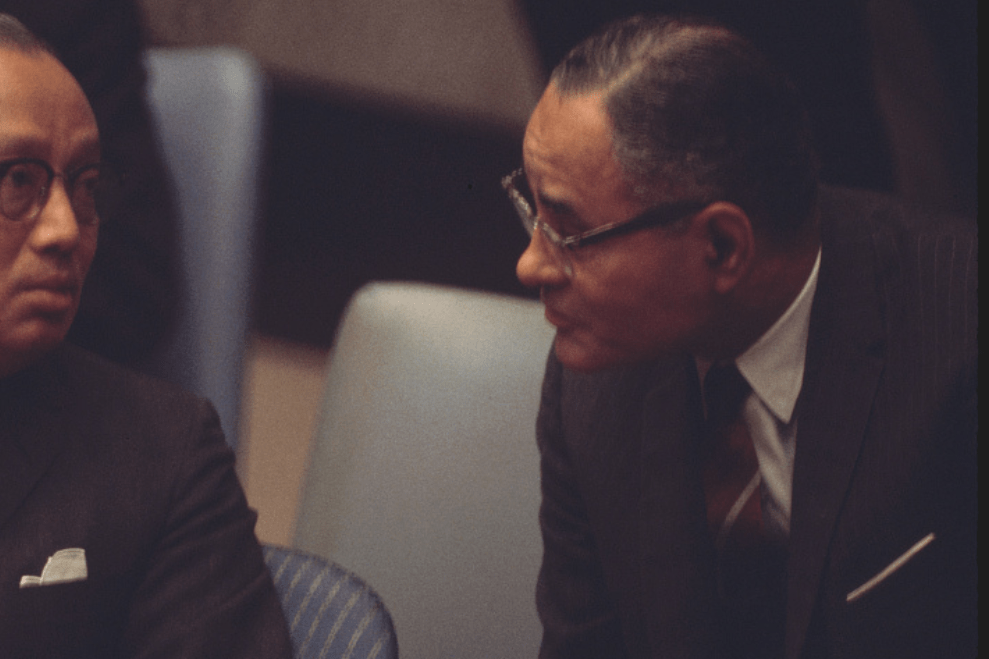
Dr. Ralph Bunche, the founding head of Howard's political science department, was a Presidential Medal of Freedom awardee and the first person of African descent to become a Nobel laureate. He was awarded the Nobel Peace Prize for his work to end war between Israel and several Arab nations. While chair of Howard’s Political Science Department, a role in which he served for 22 years, Bunche helped to found the United Nations as part of the U.S. delegation to its charter conference. He was appointed under secretary-general of the United Nations in 1968.
Andrew Young (B.S.'51)
United Nations Ambassador, Member of Congress, Mayor of Atlanta, and Civil Rights Pioneer
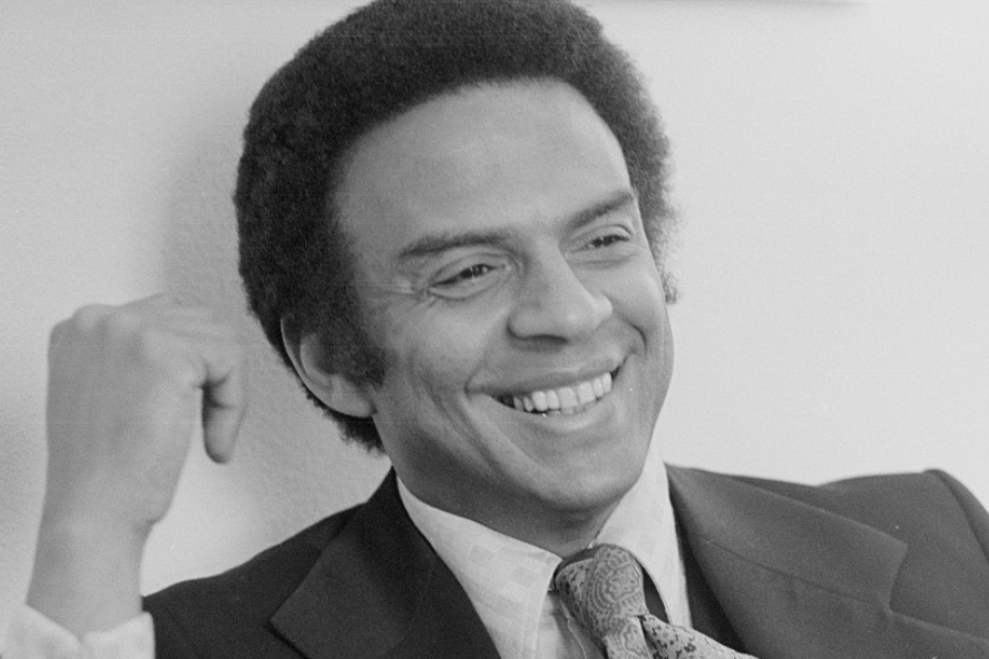
Andrew Young is legendary justice activist and political leader. He served as a top lieutenant to Rev. Dr. Martin Luther King, Jr., helping to create the modern Civil Rights Movement and organize the Montgomery Bus Boycott and the March on Washington. After serving as a United States congressman from Georgia from 1973-1977, he was appointed by President Jimmy Carter to serve as the United States Ambassador to the United Nations in 1977, the first Black person to hold that position. He helped promote democracy in Africa and peace in the Middle East. Following his United Nations tenure, he became a legendary mayor of Atlanta and was heavily involved in bringing the Olympics to Georgia in 1996.
Thurgood Marshall (J.D. '33)
United States Supreme Court Justice and U.S. Solicitor General
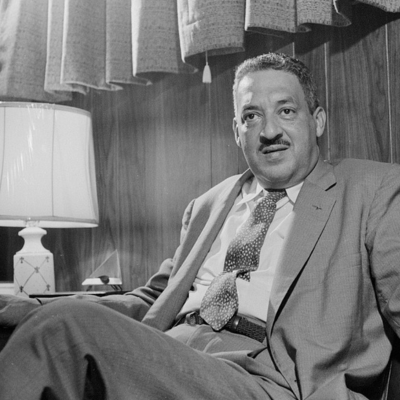
Few people can say that they literally changed the world, but no one would argue if those words had been uttered by Thurgood Marshall. As the lead lawyer in the Brown vs. Board of Education Supreme Court case, he is perhaps the most instrumental person in the overturning of segregation laws in this country. In 1965, U.S. President Lyndon Johnson appointed him U.S. Solicitor General, the official who represents the federal government before the Supreme Court. In 1967, Johnson appointed Marshall to the Supreme Court itself, where he served for 24 years. Marshall graduated first in his class at Howard Law School in 1933.
Patricia Roberts Harris (B.A. ’45)
U.S. Secretary of Housing and Urban Development and U.S. Secretary of Health and Human Services
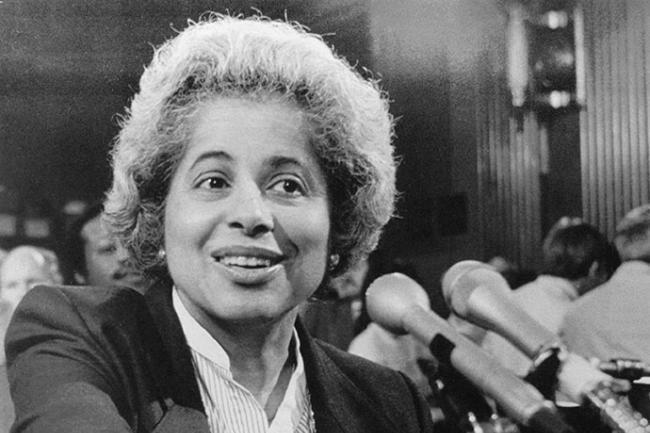
Widely known for being the first African American woman to serve as on a presidential cabinet, Patricia Roberts Harris was President Jimmy Carter’s U.S. Secretary of the Department of Housing and Urban Development in the 1970s and later Secretary of the Department of Health and Human Services. At Howard, Harris served as vice chairman of the Howard University chapter of the NAACP and a member of Phi Beta Kappa before graduating summa cum laude in 1945.
Walter Washington (L.L.B., ’48)
First Mayor of Washington, DC Under Home Rule
Walter Washington was the first Black mayor of any major city in the United States when he became the first mayor of Washington, DC under home rule in 1974. Prior to home rule, the city had been run exclusively by three commissioners under congressional supervision. Washington was the first mayor since 1871 that for which the residents of the District of Columbia could actually vote. Prior to being elected mayor, he was appointed by President John F. Kennedy to serve as the executive director of the National Capital Housing Authority and headed New York City’s housing authority.
Vernon Jordan (J.D. '60)
President of the National Urban League and Chair of President Bill Clinton’s Transition Team
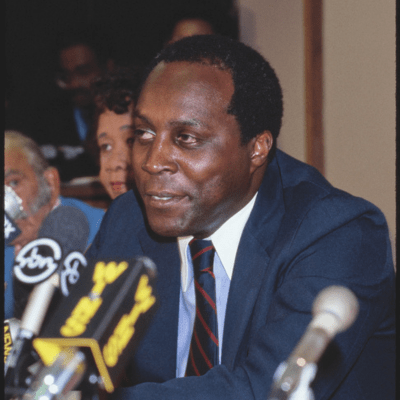
Vernon E. Jordan, Jr., Esq., spent decades at the center of American politics, public policy, and civic discourse, both on the front lines and behind the scenes. He chaired the transition team for President William Jefferson Clinton in 1992-93, helping to organize the presidential cabinet. Jordan was instrumental in improving economic, social, and political conditions for people of color and from marginalized communities. He was president of the National Urban League for 1971 to 1981, and before that, was executive director of the United Negro College Fund. He earned his law degree from Howard Law School in 1960 and today, a Howard law library is named for him.
Elijah Cummings (B.A. '73)
Chairman, U.S. House of Representatives Committee on Oversight and Government Reform
Congressman Elijah Cummings was one of the most revered members of the House of Representatives, representing Baltimore in the U.S. Congress for more than 20 years. He rose to be the powerful chairman of the House Committee on Oversight and Government Reform, working to ensure that taxpayer dollars were spent judiciously and that the federal government followed its own laws. He also served as the chair of the Congressional Black Caucus. At Howard, Cummings served as student government president and a member of Phi Beta Kappa before graduating with a bachelor’s degree in political science in 1973.
David Dinkins (B.A. ’50)
Mayor of New York City
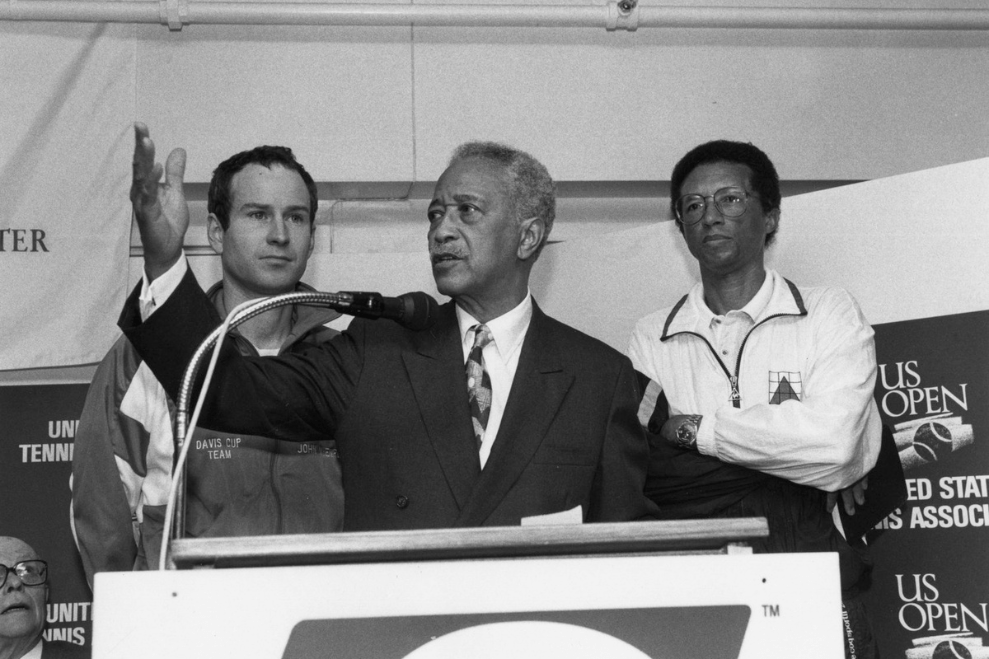
From 1990 to 1993, Mayor Dinkins served as the first and only Black mayor of our country’s largest city. He took over the helm of New York at a time when the city was besieged by crime, corruption and racial division. He was dedicated to serving all of New York’s many diverse populations and making his government as inclusive as possible. Mayor Dinkins was also determined to serve the interests of the city’s impoverished and underprivileged, including New York’s homeless populations. A Marine Corps veteran, he used veteran educational benefits to earn his Bachelor of Science degree in mathematics from Howard University in 1950.
Sharon Pratt (B.A. ’65, J.D. ’68)
Mayor of Washington, DC
Sharon Pratt is the first woman to be elected mayor of Washington, DC, where she served from 1991 to 1995. During her tenure, she worked to make government operations more efficient and accountable. She was also a leader in the journey to make Washington, DC a state. At Howard, she was a member of Alpha Kappa Alpha Sorority, Inc. and graduated with a bachelor’s degree in political science in 1965 and the Howard University School of Law in 1968.
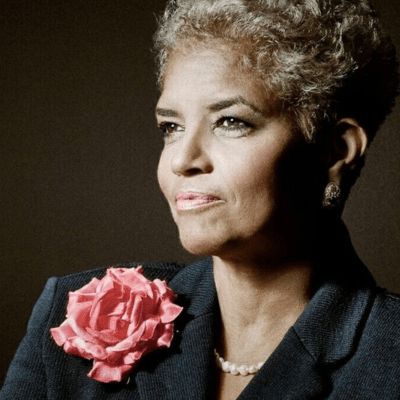
Shirley Franklin (B.A. ’68)
Mayor of Atlanta
Shirley Franklin was the first woman to be elected mayor of Atlanta and the first Black woman to lead a major Southern city. During her term, she balanced the budget after years of deficit, and worked to improve the city’s water and environmental footprint. She was reelected with 90 percent of the vote. She was named one of the five best big-city mayors by Time Magazine and was named one of the “Best Leaders of 2005” by U.S. News and World Report. She was given the Profile in Courage Award in 2005 by the John F. Kennedy Library Foundation. She graduated with a bachelor's degree in sociology from Howard in 1968.
L. Douglas Wilder (J.D. ’59)
Governor of Virginia
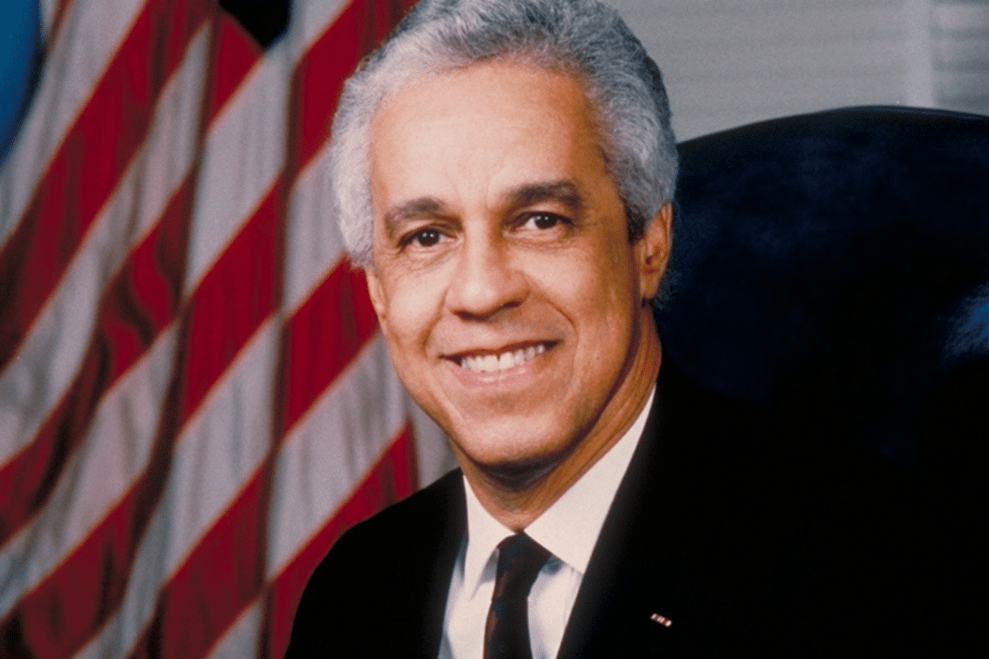
Lawrence Douglas Wilder became the first Black American elected governor of a U.S. state since Reconstruction in 1990 when he began serving a Virginia’s governor. He was also the first Black person to hold statewide office in Virgina. During his tenure, he addressed crime and gun control and improved transportation in the state. A veteran, Wilder won the Bronze Star for his service in the Korean War. He earned his juris doctorate from Howard Law School in 1959.
Edward Brooke (B.A. ’41)
United States Senator
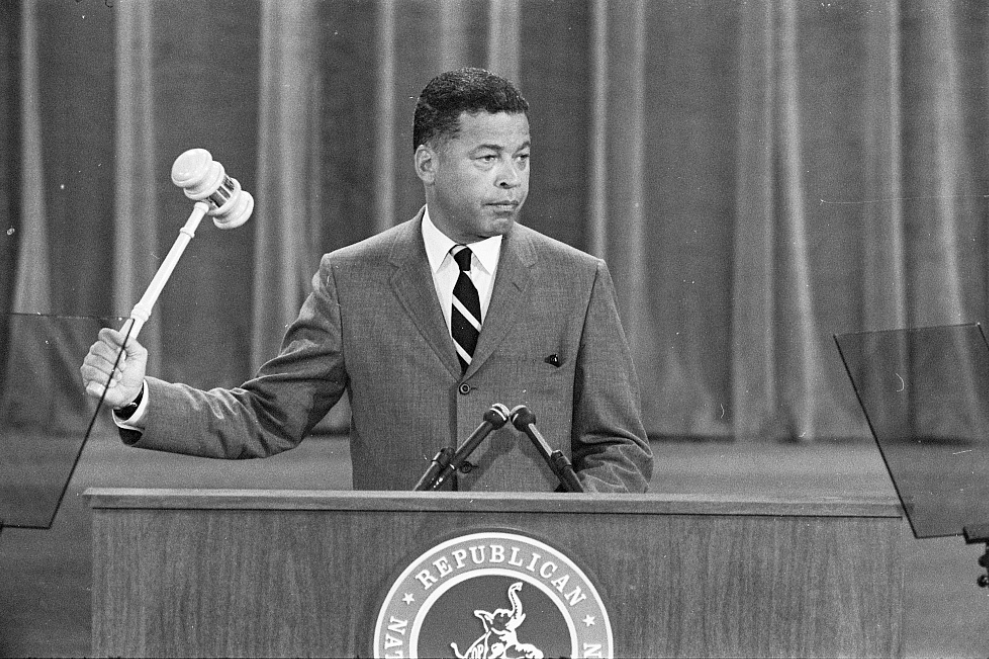
As a U.S. Senator representing Massachusetts, Edward Brooke broke a major political barrier in 1967 when he became the first Black person to be elected to the United States Senate since Reconstruction and the first Black person ever to serve two U.S. Senate terms. In the Senate, he tackled housing discrimination and promoted affordable housing, and economic opportunity. He served as the ranking member on the Senate Banking Committee, served on the powerful Appropriations Committee, and was the first Republican to call for the resignation of President Richard Nixon after the Watergate scandal. Prior to becoming a senator, he served as Massachusetts’ attorney general, where again, he the first Black person to every hold that role. As attorney general, he focused on organized crime and government corruption. Brooke graduated from Howard with a bachelor’s degree in political science in 1941.
Boyd Rutherford (B.A. ’79)
Lt. Governor of Maryland
Boyd Rutherford has been a government leader at the local, state, and national levels. President George W. Bush appointed him to serve as Assistant U.S. Secretary of Agriculture for Administration in 2006 and Governor Bob Ehrlich made him Secretary of the Maryland Department of General Services in 2003. He was elected the state’s lieutenant governor on the ticket with Larry Hogan in 2014 and served until 2023. In that role, he oversaw the state’s efforts to counter the opioid epidemic and worked to expand home ownership, combat lead poisoning, and curtail government spending. He earned a bachelor’s degree in political science from Howard in 1979.
Kasim Reed (B.A. '91, J.D. '95)
Mayor of Atlanta
As the city's 59th mayor, Kasim Reed focused on improving core city services while reducing spending. To tackle crime, he created the largest police force in the city's history and opened recreation centers for young people. He also instituted numerous reforms aimed at streamlining government operations. Before becoming mayor, Reed served in both the Georgia State House of Representatives and the Georgia senate. He graduated from Howard with a bachelor's degree in 1991 and with a juris doctorate from Howard Law School in 1995. While a student, he established a fund that has raised millions of dollars for Howard's endowment. In 2002, he was the youngest appointee to Howard's Board of Trustees and today he is a trustee emeritus.
Mike Espy (B.A. ’75)
United States Secretary of Agriculture and Member of Congress
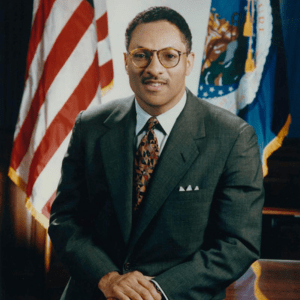
A. Michael Espy served as the 25th secretary of the United States Department of Agriculture during the administration of U.S. President William Jefferson Clinton. In this role, he oversaw the $65 billion agency and negotiated major trade deals to sell American agricultural commodities internationally. He also helped reform the food inspection system and promoted nutrition and anti-hunger programs. Prior to his tenure as Agriculture Secretary, he served as a member of Congress from Mississippi, the first Black person to do so outside of the Reconstruction era. He earned his Bachelor of Arts degree in political science from Howard in 1975.
Togo West (B.S. ’65, J.D. ’68)
U.S. Secretary of Veterans Affairs and U.S. Secretary of the Army
Togo West, Jr. served as secretary of Veterans Affairs and Secretary of the Army during the administration of U.S. President William Jefferson Clinton. As Veterans Affairs Secretary, he led the effort to provide more aid and support to the nation’s discharged service members. He oversaw healthcare for millions of veterans, including more than 950 hospitals, nursing homes, and clinics. He also led efforts to support veterans suffering from wartime-based health issues such as Agent Orange and Gulf War Syndrome, both linked to exposure to toxic chemicals. As Army Secretary, he supervised efforts to reorganize the military’s active duty and reserve units to more efficiently engage in post-Cold War activities. He also actively supported opportunities for women in the military and led a crackdown on sexual assault and harassment in the Army. West was also a veteran and was awarded the Legion of Merit and the Meritorious Service Medal. He graduated with a bachelor’s degree in electrical engineering from Howard in 1965 and then graduated in 1968 with his juris doctorate from Howard Law School, where he was first in his class and edited the Howard Law Journal.
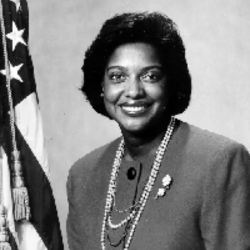
Gwendolyn Stewart King (B.A. '62, D.H.L. '18)
Commissioner of the Social Security Administration
Gwendolyn King was appointed by President George H. W. Bush to become the 11th commissioner of the Social Security Administration (SSA). The SSA distributes hundreds of billions of dollars each year to tens of millions of eligible citizens, who are mostly elderly retirees or others eligible for disability or survivor benefits. It is one of the largest nondiscretionary federal programs administered by the United States Government. Prior to her service at SSA, King served as deputy assistant to President Ronald Reagan, and director of the Office of Intergovernmental Affairs. King graduated from Howard with a bachelor's degree in French and education. Established in 2008, the Gwendolyn S. and Colbert I. King Endowed Chair in Public Policy at Howard provides students access to experienced, senior public service executives who have developed and advanced public policy initiatives.
Adrian Fenty (J.D. '96)
Mayor of Washington, DC
Adrian Fenty is the youngest person to every be elected mayor of Washington, D.C. The charismatic political figure was known for being heavily community focused. During his campaign, he became the first person to win all 142 precincts in the Democratic primary and went on to win the election with 89% of the vote. He made a priority of reforming the school system and expanding community policing. His administration also expanded health care coverage for the uninsured. Fenty graduated from Howard Law School with a juris doctorate in 1996.
Ras Baraka (B.A. ’91)
Mayor of Newark, New Jersey
Ras Baraka is the 40th mayor of Newark, New Jersey, the most populous city in the state. As mayor, he has championed economic empowerment and public-school reform. He has also worked to promote home ownership and reduce crime and gang violence. Prior to his election as mayor, he served as a high school principal. He graduated with a Bachelor of Arts degree in political science in 1991.
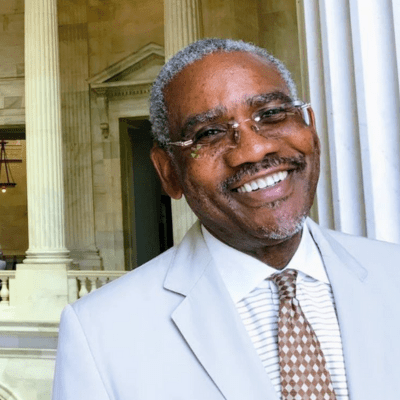
Gregory Meeks (J.D. ’78)
Chairman of the U.S. House of Representatives Committee on Foreign Affairs
The ranking member on the important House Committee on Foreign Affairs, Gregory Meeks has represented New York in the United States Congress since 1988. He previously served as chair of the committee, which oversees U.S. policy related to foreign assistance, national security, war powers, treaties, peacekeeping, arms control, embassy security, the promotion of democracy, and diplomacy. In his role, he has traveled the globe to protect U.S. interests abroad and has been a policy leader domestically. He is also senior member of the House Financial Services Committee, where he previously served as the chairman of the Subcommittee on Consumer Protection and Financial Institutions. This subcommittee oversees the banking system, consumer credit, and financial regulators including the FDIC, Federal Reserve. He co-authored provisions of the Dodd-Frank Wall Street reform law to stress test institutions, include more women and minorities in financial regulatory agencies, and require reporting of efforts to end the utilization of conflict minerals. He earned a law degree from Howard Law School in 1978.
Summer Lee (J.D. ’15)
U.S. Congresswoman
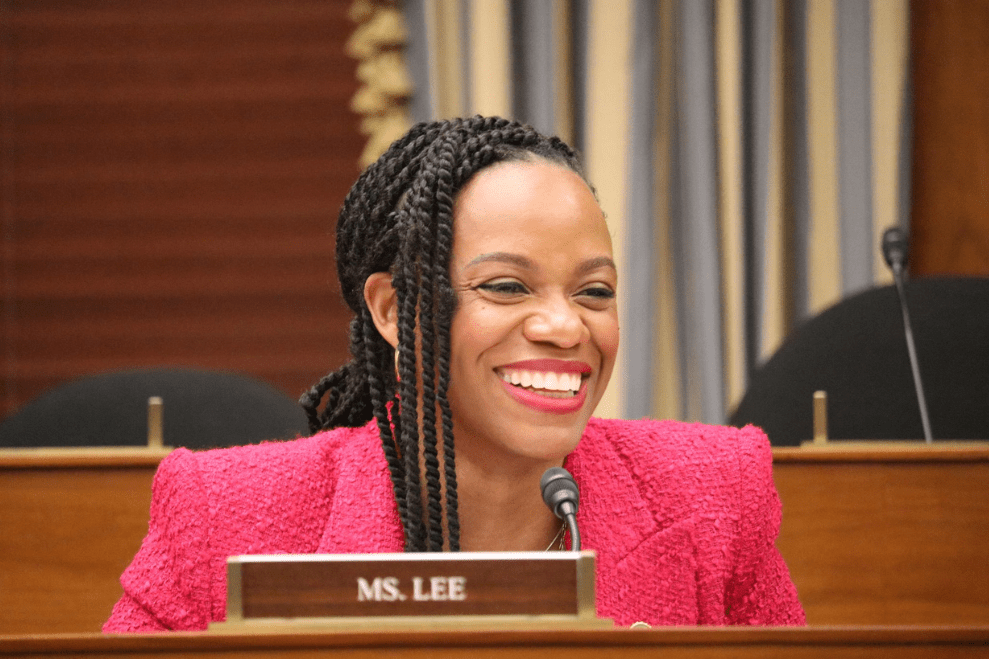
Summer Lee represents Pennsylvania in the United States Congress. She is the first Black woman elected to Congress from Western Pennsylvania. She sits on the House Committee on Oversight and Accountability as well as the House Committee on Space, Science, and Technology. She also is co-chair of the Congressional Black Caucus’ Race and Justice Task Force. Prior to joining Congress, she served as a member of the Pennsylvania state legislature and has led the fight to increase the minimum wage and promote voter mobilization. She graduated with her juris doctorate from Howard Law School in 2015.
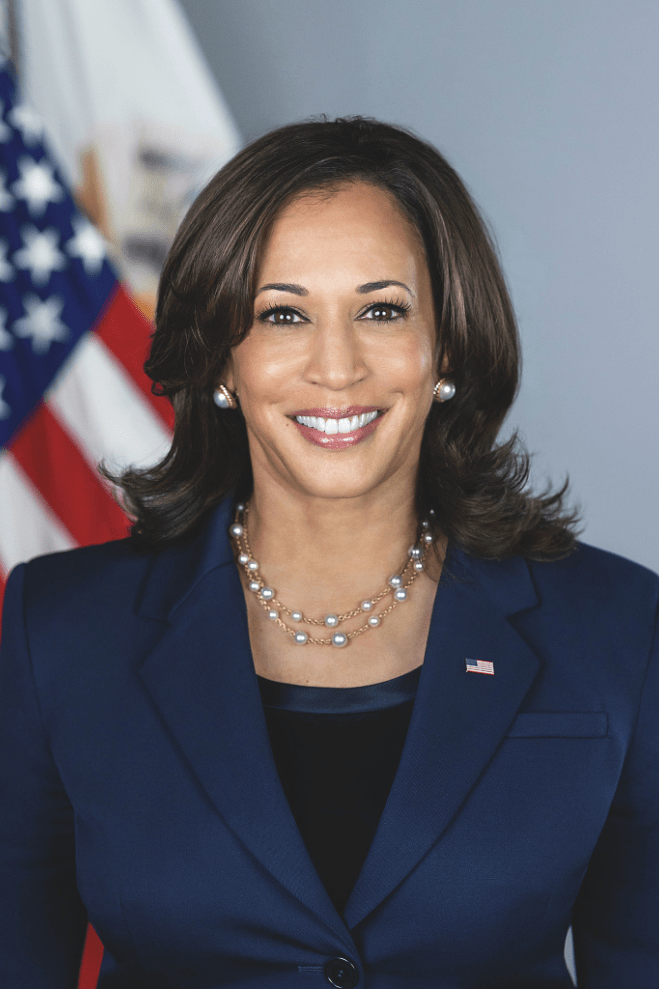
Kamala Harris (B.A. ’86)
Vice President of the United States of America and U.S. Senator
Vice President Kamala D. Harris was born in Oakland, Calif. She refers to her time at Howard as her “formative years” where she first was introduced to her love of politics. After earning an undergraduate degree from Howard University and a law degree from the University of California, Hastings, she began her career in the Alameda County District Attorney's Office. In 2003, Sen. Harris became the District Attorney of the City and County of San Francisco. Having completed two terms as the District Attorney of San Francisco, Kamala was elected as the first African-American and first woman to serve as California's Attorney General. In this role, she worked tirelessly to hold corporations accountable and protect the state’s most vulnerable people. In 2017, Harris was sworn in as a United States Senator for California, the second African-American woman and first South Asian-American senator in history.
In the U.S. Senate, Harris served on the Homeland Security and Governmental Affairs Committee, the Select Committee on Intelligence, the Committee on the Judiciary, and the Committee on the Budget. On January 21, 2019, she formally announced her run for president and hosted her first press conference at her alma mater, Howard University. Harris’s historic selection as the Democratic vice presidential candidate was announced in August of 2020. Harris is the first Black woman and the first Asian-American to run for vice president on a major party ticket in the United States. She was inaugurated as Vice President of the United States on January 20th, 2021.


